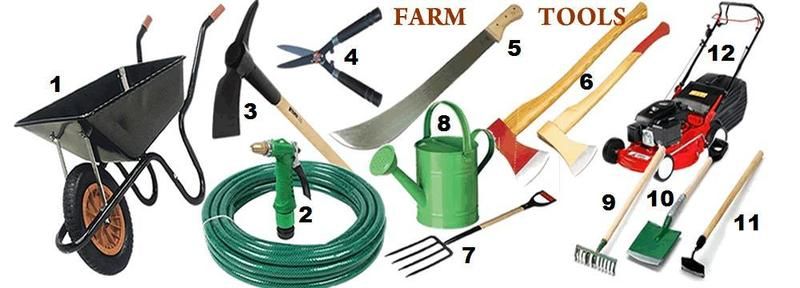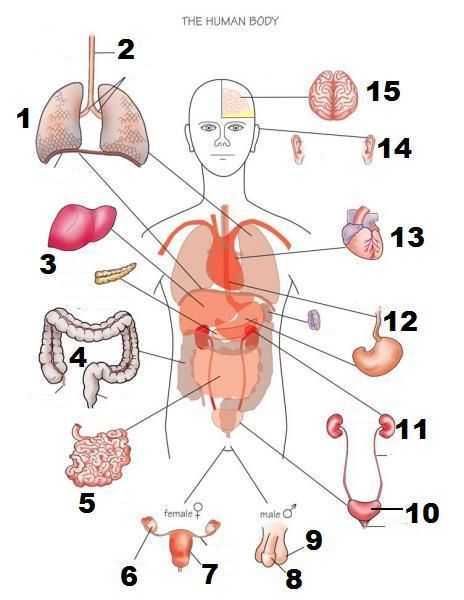Ok, my attempt. Russian and English are languges I'm most fluent in, so it's a shame that I had to look up a lot of the words (red). German is my native languages, so this is for reference.
Russian
Xephyr's Pictures - got all of them except D (not an item I talk about often, and it turns out that the Russians just loaned the German word).
A ключ
B воронка
C стэплер
D моренгштерн
E глаз
F вафли
G пена
H шестиугольник
I когти
Farm / Gardening Tools - so I only knew 8 out of 12. I definitely do too little gardening in Russian.
1 тачка - huh, I only knew this as a slang word for car. So this is its basic meaning...
2 шланг
3 кирка
4 ножницы
5 секач
6 топор
7 вилка вилы - remebered it correctly only when looking it up
8 лейка
9 грабли
10 лопата - also means shovel; when checking. I also found the synonym заступ
11 Several words here: кирка, кайла мотыга - only the last one I've seen before
12 газонокосильщик
Checked Imralu's answers after writing this down. I didn't know tools 8 and 9, got 4 wrong, am glad that even a native speaker is unsure about 5, and wait - F is not the pastry I thought it was?
Xephyr's Pictures:
A wrench
B funnel
C stapler
D mace
E eye
F wafers ??
G foam
H hexagon
I claw, talon
Tools:
1 wheelbarrow
2 hose
3 pickaxe
4 (gardening) scissors
5 machete (?)
6 Axt
7 pitchfork
8 ??
9 ??
10 spade
11 hoe
12 lawnmower
German - and I still think that Xephyr's F is pastry. Xephyr, tell me that I'm right.

Xephyr
1 Schubkarre
2 Schlauch
3 Spitzhacke
4 Gartenschere / Heckenschere
5 Hackmesser / Machete (?)
6 axe
7 Forke
8 Gießkanne
9 Harke / Rechen
10 Spaten
11 Hacke
12 Rasenmäher
Tools
A Schraubenschlüssel
B Trichter
C Hefter / Tacker
D Morgenstern
E Auge
F Waffeln
G Schaum
H Sechseck
I Klaue, Krallen








